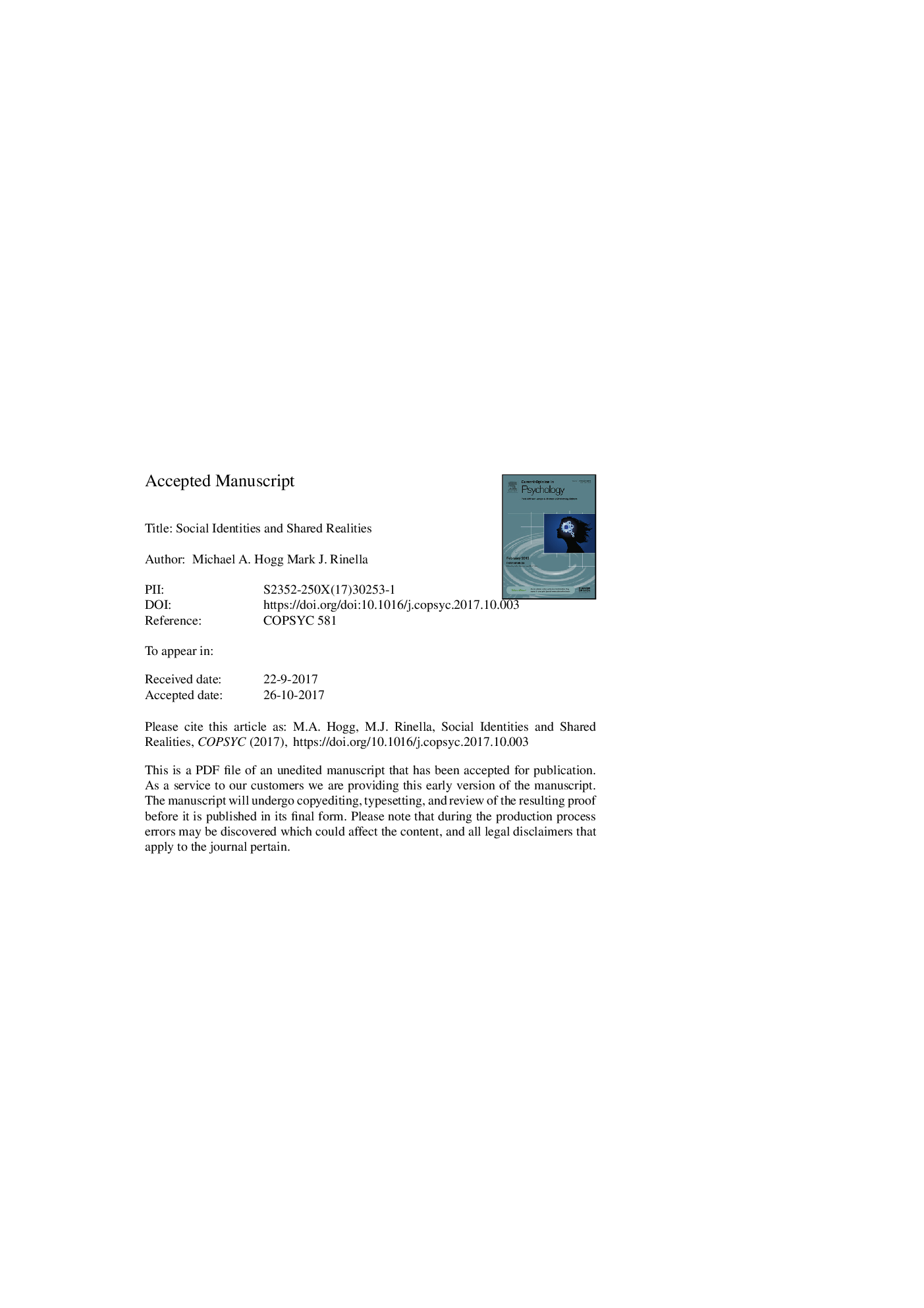| Article ID | Journal | Published Year | Pages | File Type |
|---|---|---|---|---|
| 7239882 | Current Opinion in Psychology | 2018 | 18 Pages |
Abstract
People are fundamentally motivated to establish a shared reality with others to validate their identity and experiences. Guided by social identity theory, we examine how social identity processes, such as self-categorization and depersonalization, create a shared identity and a sense of shared reality. Research demonstrates that internal states such as attitudes, feelings, and emotions are often shared among members of a group. Furthermore, research has shown that self-uncertainty motivates people to establish shared realities through group identification, often with highly entitative groups that are associated with a self-saturating reality that is shared absolutely. Finally, we review research on how group-defining norms that serve as the bases of these identity-related shared realities are constructed and communicated through group-membership based influence.
Related Topics
Social Sciences and Humanities
Psychology
Applied Psychology
Authors
Michael A Hogg, Mark J Rinella,
